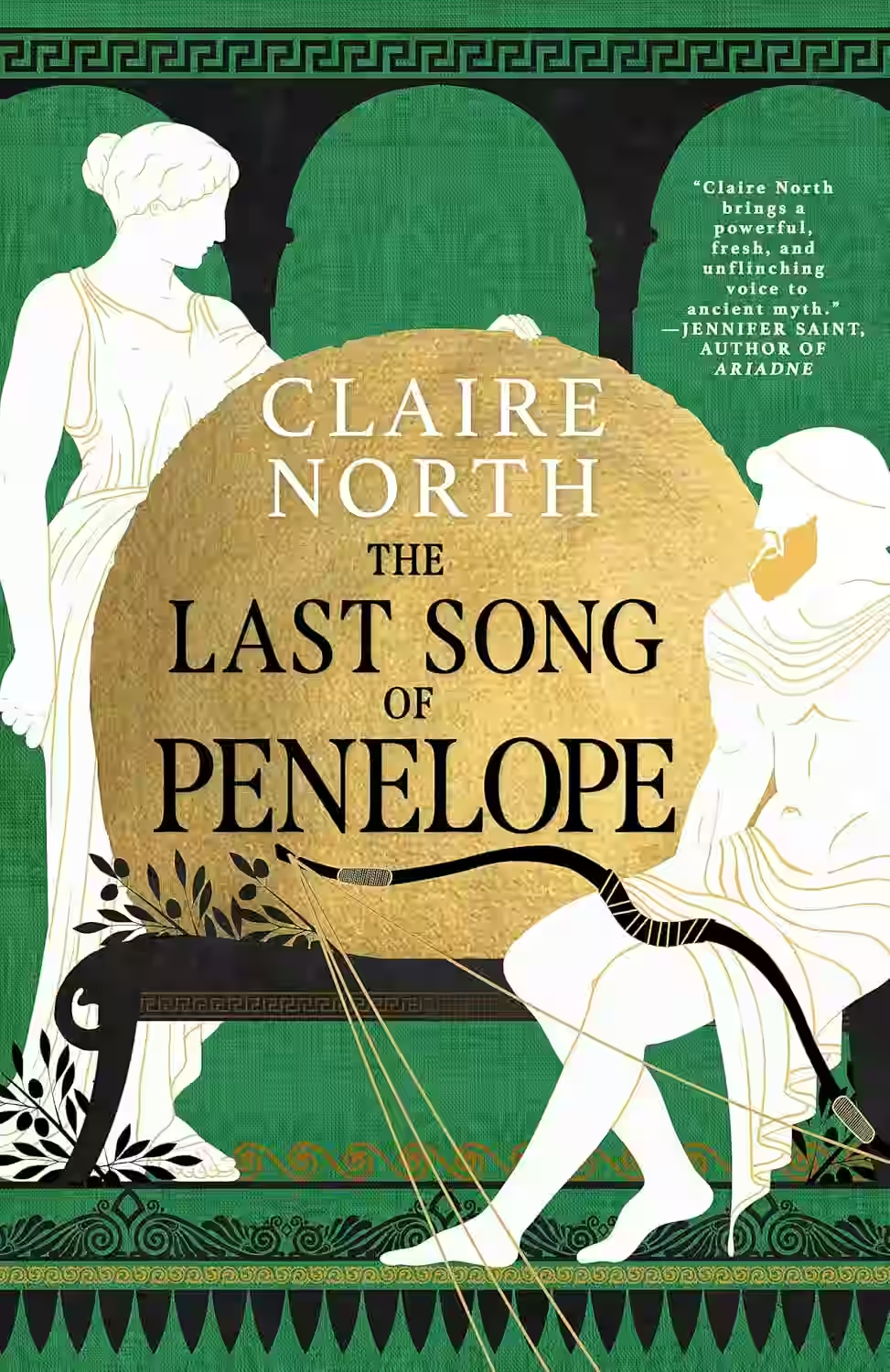
In 'The Last Song of Penelope,' Claire North reimagines the classic tale of the Odyssean legend from the perspective of Penelope, the enduring wife of Odysseus. This novel delves deeply into themes of love, endurance, and the silent strength of women, bringing a fresh voice to ancient mythology. North's portrayal of Penelope as a protagonist with her own agency and depth provides a vivid exploration of her struggles and resilience during Odysseus's prolonged absence. The narrative is imbued with imagination and mythological poignancy, effectively balancing lyrical prose with a pace that maintains the reader's engagement. 'The Last Song of Penelope' challenges the traditional narratives and plays with themes of loyalty and identity in timeless yet fresh ways. With its enchanting language and profound insights, this book is a testament to the unheralded songs of those history has often left silent.
About The Songs of Penelope Series
The Songs of Penelope trilogy by Claire North is a fresh and immersive mythic retelling centered on Penelope, wife of Odysseus, and the women of Ithaca. It begins with Ithaca, narrated through Hera’s voice, as Penelope deftly manages Ithaca in her husband’s absence and defies fate. House of Odysseus follows when Odysseus’s return sparks political and familial tension, exploring power and loyalty. The final act, The Last Song of Penelope, sees Penelope tested as old suitors and gods threaten her realm. Rich in poetic prose, feminine strength, and cunning strategy, it reclaims the epic from a bold female perspective.
About Claire North
Claire North is the bestselling pseudonym of British author Catherine Webb, who has gained widespread acclaim for her distinct interdisciplinary approach to speculative fiction. Born in 1986, Webb published her first novel at age 14 and has since established herself as a formidable voice in contemporary literature. Writing under her pen name, North is best known for her critically praised works 'The First Fifteen Lives of Harry August' and 'The Sudden Appearance of Hope', which explore intricate themes of time, identity, and morality. Her inventive narratives and depth of character have earned her numerous accolades, including the John W. Campbell Memorial Award and the World Fantasy Award. North's innovative storytelling continues to challenge and redefine genre boundaries, making her a pivotal figure in modern speculative fiction and a compassionate explorer of the human condition.
Other Books by Claire North
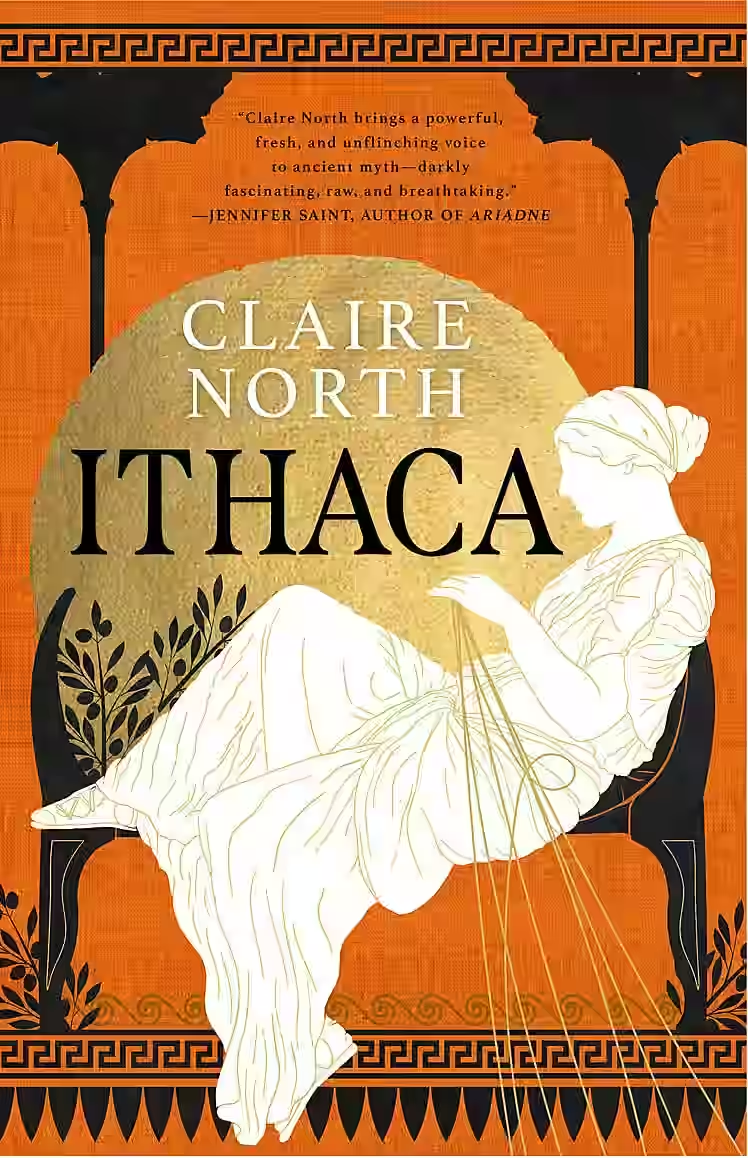
Ithaca
by Claire North
Series: The Songs of Penelope (#1)
In 'Ithaca,' Claire North masterfully reimagines the legend of Penelope, exploring themes of power, patience, and survival against the backdrop of a fantastical ancient Greece. The narrative offers a fresh perspective on Penelope, a woman often overshadowed by her husband, Odysseus, yet who exudes resilience and astute political acumen while ruling in his prolonged absence. North's lyrical prose and dynamic storytelling paint a vivid picture of a kingdom in waiting, delving into the intricacies of female agency and the silent strength required to maintain authority amidst uncertainty and threat. Through rich characterization and a compelling plot, 'Ithaca' elevates a timeless myth into a poignant meditation on identity and control.
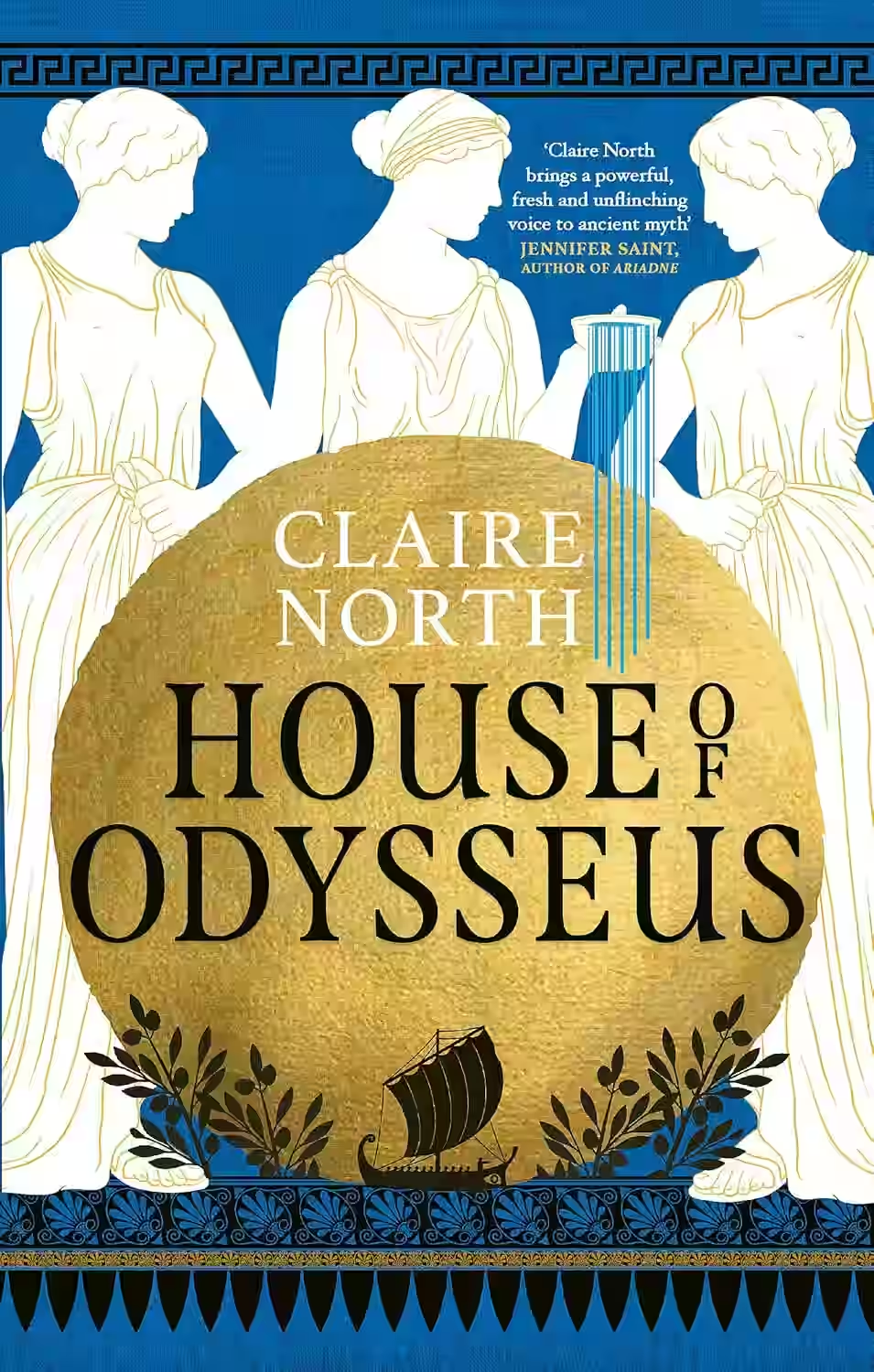
House of Odysseus
by Claire North
Series: The Songs of Penelope (#2)
In 'House of Odysseus' by Claire North, the labyrinthine complexities of Greek mythology are reimagined through a modern lens. The narrative unfolds as a compelling tapestry of intrigue and destiny centered around the life and legacy of the legendary hero Odysseus. North masterfully brings rich detail and emotive depth to beloved mythological characters, transforming them from static icons to dynamic figures. The story delves into themes of power, legacy, and the enduring human spirit, skillfully questioning the nature of heroism itself. Readers are drawn into a world that balances epic adventure with intimate personal struggles, leaving a profound impact through its vivid storytelling and philosophical exploration.
Similar Books

Lavinia
Ursula K. Le Guin's "Lavinia" breathes life into a briefly mentioned character from Virgil's epic, the Aeneid. In this novel, Lavinia, a princess of Latium, finally gets her own story, stepping out of the shadows to narrate in a first-person perspective. The novel beautifully blends historical fiction with mythological elements, offering a fresh narrative that explores themes of fate, autonomy, and the struggles of self-definition. Through Lavinia's eyes, the reader is drawn into the era's political intrigues and personal desires. Le Guin's masterful writing invites reflection on the nature of truth and the legacy of stories untold. Her evocative prose and richly detailed settings envelop the audience in a bygone world that echoes with both personal and epic echoes, making it an essential read for fans of historical and mythological fiction.
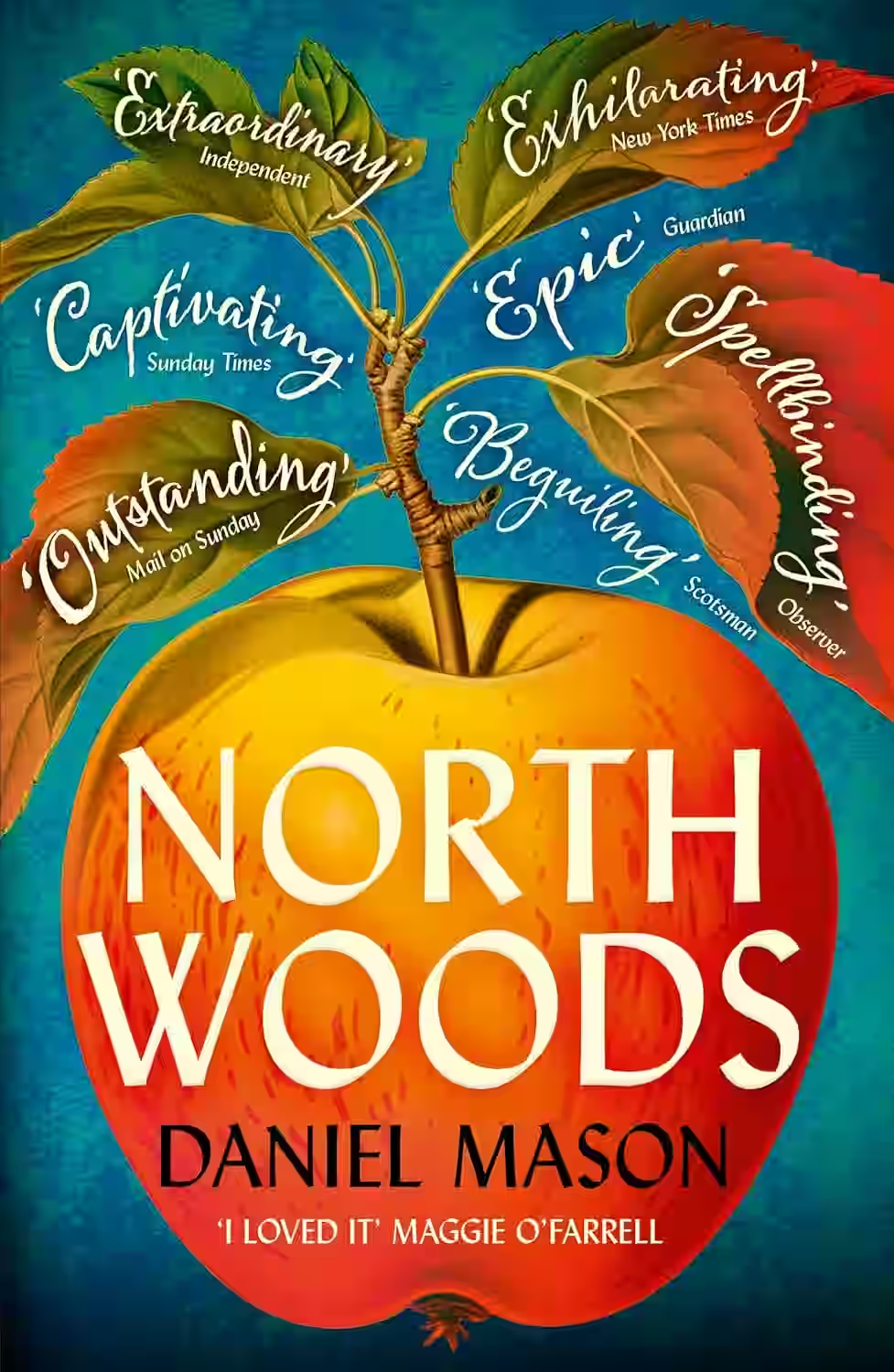
North Woods
by Daniel Mason
Spanning centuries, North Woods traces the lives, deaths, and legends rooted in a single New England house and its surrounding forest. From Puritan settlers and eccentric naturalists to star-crossed lovers and reclusive artists, each inhabitant leaves a mark on the land. Mason weaves history, folklore, letters, and even fungi into a vivid portrait of change and continuity. This richly imaginative novel explores humanity’s relationship with nature, time, and storytelling itself. North Woods is a haunting, lyrical mosaic that celebrates the enduring power of place and the mysterious threads connecting all lives across generations.
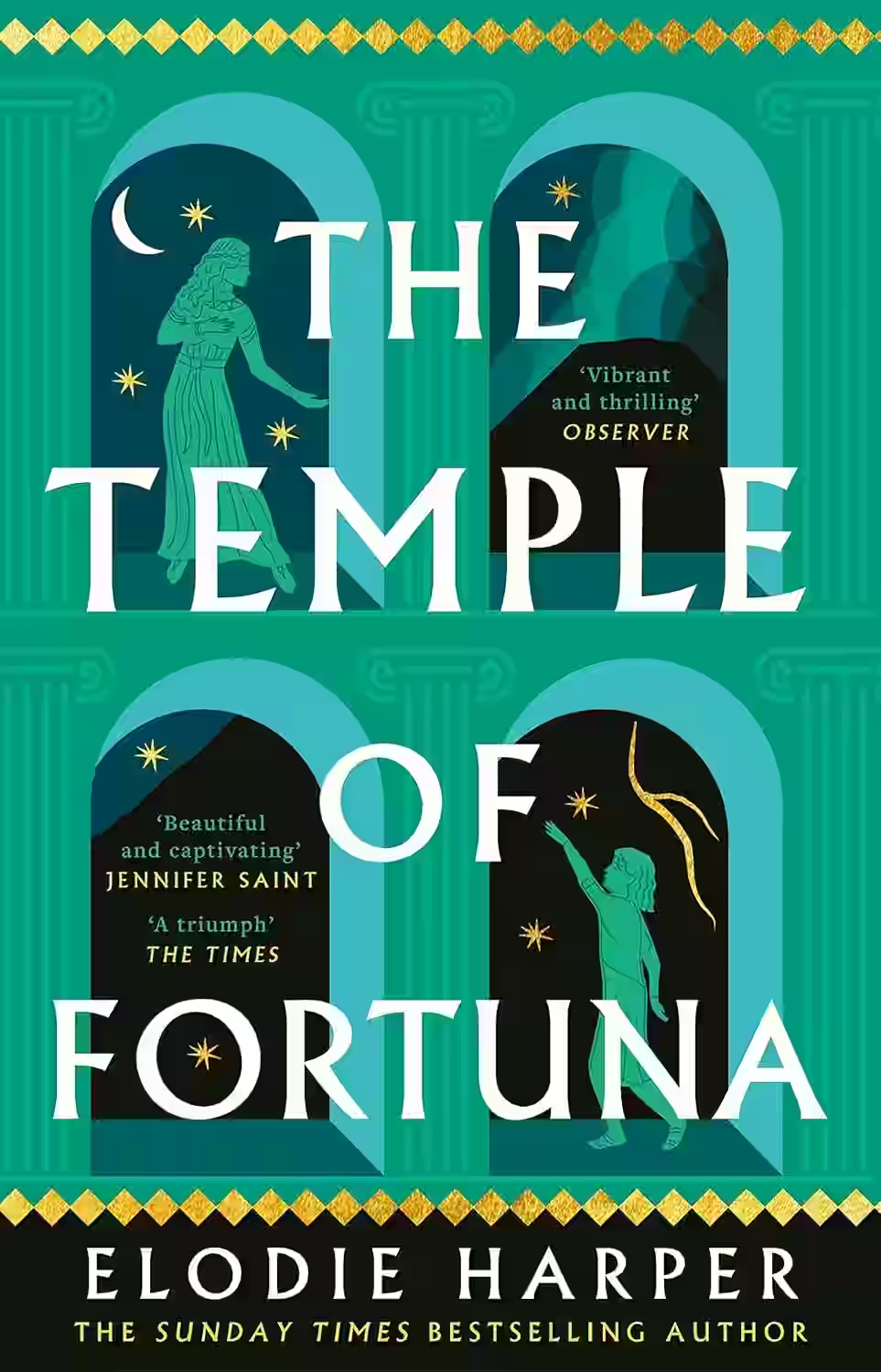
The Temple of Fortuna
Series: The Wolf Den (#3)
Elodie Harper's 'The Temple of Fortuna' is a captivating historical fiction novel set in the vibrant and tumultuous city of Pompeii. The story intricately weaves the lives of its richly drawn characters against the backdrop of impending volcanic disaster. The protagonist, Amara, is a resilient woman navigating the complexities of love, destiny, and survival. Harper expertly explores themes of fate versus free will, as well as the ephemeral nature of luck embodied by the goddess Fortuna. With lyrical prose and meticulous historical detail, the novel paints a vivid picture of life in ancient Rome, while also delivering a narrative punctuated by tension and emotion. 'The Temple of Fortuna' will resonate with readers who appreciate rich storytelling and well-crafted historical settings.
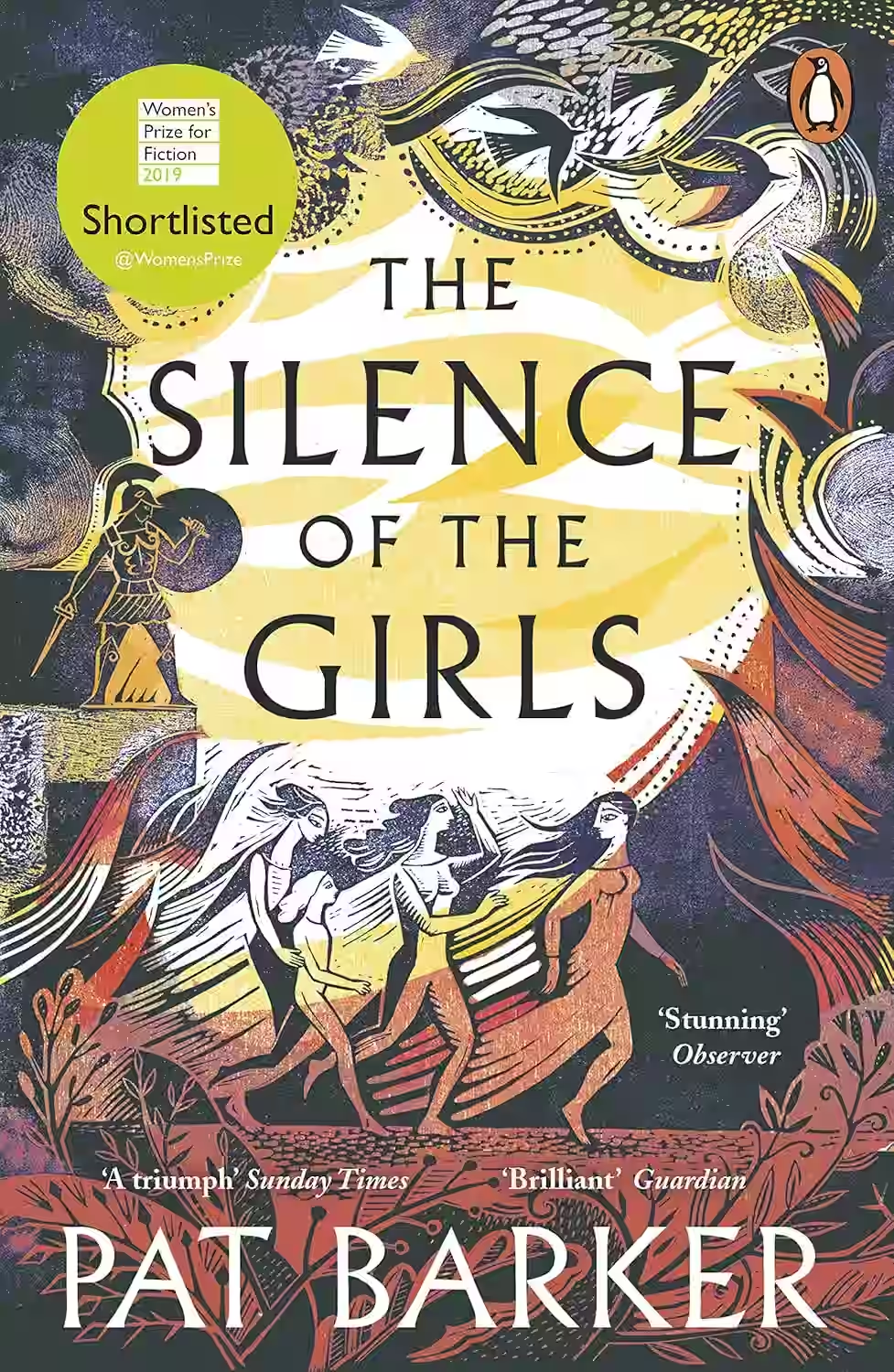
The Silence of the Girls
by Pat Barker
Series: The Women of Troy (#1)
In 'The Silence of the Girls,' Pat Barker revisits the epic tale of the Trojan War from a revolutionary perspective, shining a spotlight on the silenced voices of women. The narrative follows Briseis, a queen turned slave, as she navigates her new reality as Achilles’ war prize. Barker masterfully weaves themes of power, trauma, and resilience, bringing an achingly human touch to a tale traditionally dominated by male-centric heroism. Her prose is both lyrical and harrowing, painting vivid imagery of brutality and survival. The novel challenges readers to reconsider celebrated legends by exploring the cost of war through the eyes of its often-overlooked victims, offering a poignant commentary on the untold experiences of women in history.